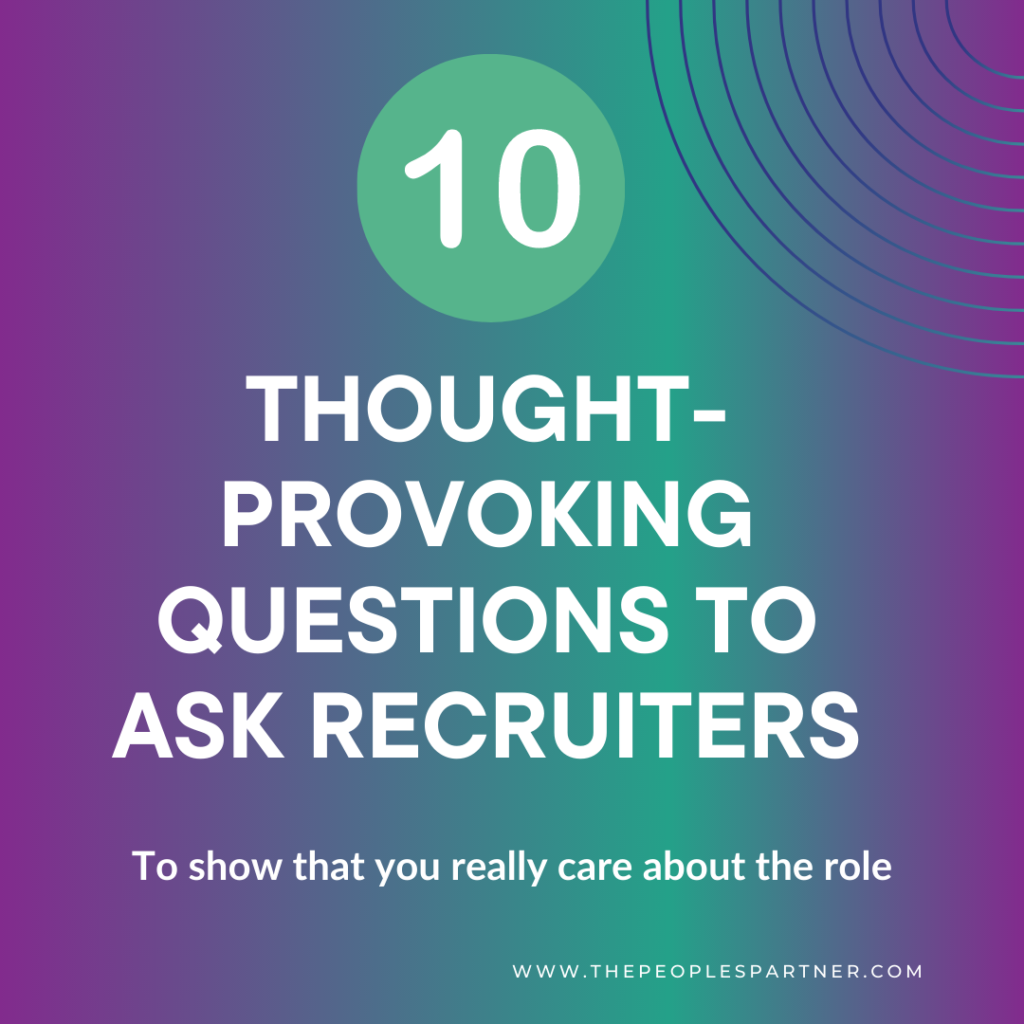10 Thought-provoking Questions to ask at an Interview
Michelle 15 November 2021

10 Thought-provoking Questions to ask at an Interview
1. Why is this position available?
Why to ask it: The answer from this question can tell you a few helpful things: whether this is a new position (which comes with its own challenges), or whether someone left the position because they were promoted, moved laterally at the company, quit, or were dismissed. Whatever the answer, you will learn something valuable about the job and team you might join.
2. What makes it a great day and what makes it a challenging day at work?
Why to ask it: Rather than a vague question about what a “typical day” may look like, this subtle, yet hard-hitting question will allow you to get a much clearer picture of the highs and lows of the job.
3. When was the last time you promoted someone within your team, and why?
Why to ask it: This question can provide insight into what the hiring manager considers to be the most important traits, skill sets, and achievements to progress within the company. Plus, it also gives intel on career progression within the organization and how often employees are able to move up through the ranks.
4. What are some of the challenges you expect the person in this position to face?
Why to ask it: Every job will have its challenges, but asking about them specifically can help you learn what they may be ahead of time and whether they’re the types of challenges you’d feel comfortable tackling
5. How is criticism and feedback handled within the team?
Why to ask it: Some managers and teams do a great job of handling feedback and critical discussions in a way that helps everyone grow and evolve, and some just don’t. The answer you receive from this question will help you know what to expect and whether it’s an environment you’d be well-served in.
6. What is the main reason employees stay at or leave this company?
Why to ask it: Not only will this question provide a better sense of a company’s existing culture, it will also offer insight as to how aware the company is about employee experience and if they take employee feedback, such as exit interviews, to heart
7. Could you tell me if you have any Employee Resource Groups (ERG) and how they might support your Diversity, Equity, and Inclusivity (DE&I) work?
Why to ask it: By asking directly about ERG’s, you’ll be able to determine if the company is vested and committed to their DEI strategic plans, and if they’re creating programs and policies to support their employees. This question is also an excellent way to determine if your values align with the company’s values and mission statement, and if the company provides opportunities for their employees to grow while being valued as a contributor.
8. What is the company’s approach to supporting the work-life balance of employees, and what are some recent initiatives you’ve put in place related to the pandemic?
Why to ask it: The answers received from this question will help you determine if the company really does support work-life balance and in what ways. Asking about any new things they’ve done as a result of the pandemic will tell you if the company is responsive to the ever-changing needs of its workforce.
9. How does the company determine salary levels or ranges for remote workers and is it at all different for in-office workers or hybrid workers?
Why to ask it: Companies with remote workers have several different ways they might determine salary levels. Typically, it’s based on either the company’s location, the worker’s location, or another metric like national average. Knowing how they calculate their pay rates gives you solid information to make informed decisions if/when you’re negotiating salary requirements.
10. Do you have any hesitancy in hiring me?
Why to ask it: This offers a chance to immediately address anything they might say, and hopefully help the interview move past whatever is making them hesitant about hiring you for the role. Plus, it can provide solid information for how to improve for future interviews.










